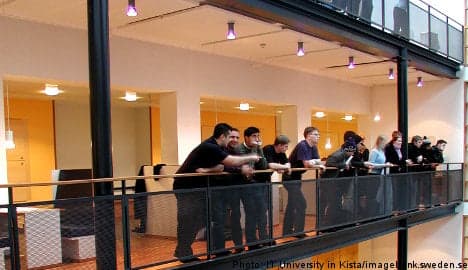Student loan body hunts for cheats

Sweden's student loan authority (Centrala studiestödsnämnden, CSN) has expanded its search for those who cheat the system, after an investigation showed that a large number of people had been lent money to which they were not entitled.
A review of 4,500 students showed that 1,500 or a third of the total had wrongly been lent money. CSN says it expects to report 145 cases of suspected fraud to the police. The errors cost 15 million kronor ($1.97 million).
The investigation is now being expanded to 30,000 people who studied full-time for at least 20 weeks in 2009 .
When all full-time students have been checked, it is estimated that the sum will have risen to between 50 and 100 million kronor. A significant source of fraud is students who claim loans for full-time study, but are not registered at university full-time.
"It is serious that we have given money to the wrong students," said Klas Elfving, press secretary at CSN.
"However, we grant a total of 23 billion kronor each year, so we do not think fraud is especially prevalent if you look at the big picture."
Comments
See Also
A review of 4,500 students showed that 1,500 or a third of the total had wrongly been lent money. CSN says it expects to report 145 cases of suspected fraud to the police. The errors cost 15 million kronor ($1.97 million).
The investigation is now being expanded to 30,000 people who studied full-time for at least 20 weeks in 2009 .
When all full-time students have been checked, it is estimated that the sum will have risen to between 50 and 100 million kronor. A significant source of fraud is students who claim loans for full-time study, but are not registered at university full-time.
"It is serious that we have given money to the wrong students," said Klas Elfving, press secretary at CSN.
"However, we grant a total of 23 billion kronor each year, so we do not think fraud is especially prevalent if you look at the big picture."
Join the conversation in our comments section below. Share your own views and experience and if you have a question or suggestion for our journalists then email us at [email protected].
Please keep comments civil, constructive and on topic – and make sure to read our terms of use before getting involved.
Please log in here to leave a comment.